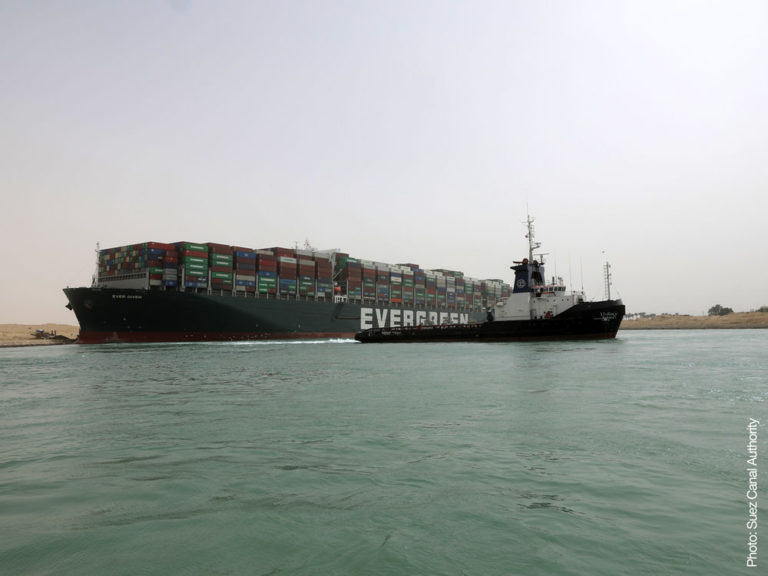It’s not your imagination. Problems in the ocean shipping industry are on the rise and shippers’ costs are going up as a result. While some issues are a direct result of the pandemic, which gets blamed for a lot these days, many are not.
This makes it an important time for businesses to understand what additional costs they are potentially responsible for as shippers and BCO’s. The reason is many companies misunderstand if, or how much, insurance is included in the cost of their shipments. Or when the coverage they are paying for is comprehensive enough to cover the types of extreme circumstances that have occurred lately.
Ever Given’s situation is one notable example. Recently, the ship’s owner declared General Average, which means now the pain starts for the cargo owners with containers on the ship because they’re all now responsible for a share of the very high cost of freeing the vessel.
Here is what companies with cargo on Ever Given are facing as the ship is held for survey. First, shippers will need to post a cash or bond deposit. Then, once estimates for damages and repairs are determined, the cargo owners are informed of their prorated share, and payment is due. And finally, with that payment made, there is still a requirement for the cargo owner to pay the cost of transit to its intended destination.
This is a bill estimated to be $1B or more! Individual shippers’ responsibility will depend on whether or not they had the necessary insurance and the amount of coverage in their policy. The bad news for some is that it’s likely many are not covered.
What Do Marine Insurance Policies Cover?
Ever Given is an extreme situation, so let’s get back to the basics – what does a marine insurance policy typically cover? Some protections cover sinking, fire, explosion, stranding, cargo loss during loading and unloading, and losses because of natural phenomena, such as earthquakes and lightning strikes.
When you buy a comprehensive marine insurance plan, the goal is obviously to curtail any financial losses or damages while exporting or importing products. As we mentioned already, the occurrences of problems for ocean shipping are on the rise.
Here are 6 Reasons to Stay Protected
1. Increased Cargo Theft
The recent COVID-19 pandemic gave further rise to the problem of cargo theft. According to a November 2020 report in Loss Prevention Magazine online, the rate of cargo theft jumped by 107% in April 2020 compared to April 2019. The National Insurance Crime Bureau (NICB) also supported this finding.
Cargo theft continues to increase, through fictitious pickups, at an alarming rate. Most of the fake pickups happen on the weekend, especially during Friday, late in the day. That is when shippers feel the crunch of moving products during the week. Given the timing of the crimes, shippers rarely report the thefts for several days which reduces a shipper’s chances of recouping losses.
2. Lost Containers at Sea
Losses at sea continue to increase each year. The rising trend toward carrying large stacks of containers during import and export has led to this problem. Records show that the number of cargo containers falling off of cargo ships numbered 2,980 in November 2020 – a major increase in lost sea cargo. Whether the loss occurs because of swelling tides, the pandemic’s surge on imports, or another reason, you can never be too careful in the import and export business.
For instance, a well-known occurrence among ocean-going vessels involves parametric rolling. This activity causes a ship to roll at large angles, even in a moderate sea. Parametric rolling leads to loss of containers, cargo damage, or, in some extreme instances, the capsizing of a vessel.
3. Disasters Happen – Anywhere
A comprehensive cargo insurance policy covers you for any type of in-transit event, whether it involves a storm, shipwreck, or pirate attack. Yes, pirates still do attack ships, even more frequently since the recent pandemic. According to U.S. News and World Report, piracy on the high seas doubled during the first part of 2020, compared to 2019.
4. Damages to Cargo Occur Every Day
Cargo insurance covers you for damages as it does theft. Even if you maintain the highest measures for safe loading and unloading of cargo, mistakes still occur. These errors can result from poor ventilation, wrong container choices, and faulty packaging. Having no marine insurance in force can prove to be a big mistake.
5. Staying Contractually Compliant Ensures Trust
You need to buy cargo insurance as a shipper. Otherwise, you can hurt your professional reputation and destroy buyer confidence. If a shipping contract requires that you buy marine insurance and you do not have the coverage, you will lose the trust of buyers, which will affect you professionally and financially.
6. You Cannot Depend on the Transport Carrier to Cover Losses
Shippers need to keep the following fact in mind: A carrier, by law, cannot take responsibility for container damages or losses caused by a common reason, such as a natural disaster. Even in situations where carriers hold some responsibility, a restriction remains in place on liability. That is why you still need to buy cargo insurance and a comprehensive marine insurance plan to cover yourself.
Protect Yourself
The liability and exposure for every company shipping ocean freight require cargo insurance. And, the extreme circumstances of the past year (with or without COViD) illustrate this point very clearly. Shippers need to secure comprehensive policies that cover the potential problems that are out there. If you are unsure if yours is adequate or know you may need additional coverage, Transmodal can help.



